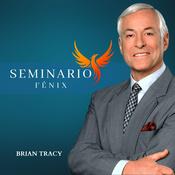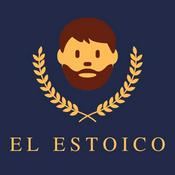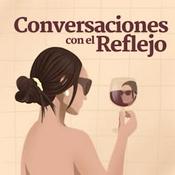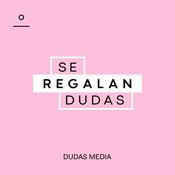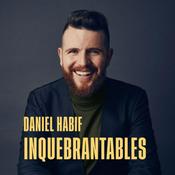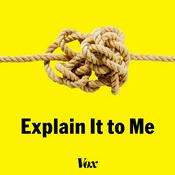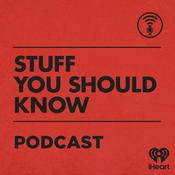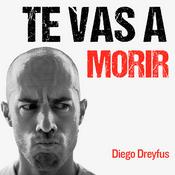330 episodios
- David and Tamler return to Mircea Eliade's The Sacred and Profane and discuss the chapter "Sacred Time and Myths." How does viewing time as circular give us a periodic window into the sacred? What does it mean to reactualize the creation of the universe in ritual and to view time as "starting anew"? How did Christianity radically change the experience of time by locating the incarnation of the sacred in the historical past?
Plus, do you believe in conspiracy theories? A new study says you should think twice about putting them in your dating profiles.
Green, R., Kamitz, L. C., Toribio-Flórez, D., Biddlestone, M., Gasking, F., Sutton, R. M., & Douglas, K. M. (2022). Conspiracy theories and online dating: It'sa (mis) match!. Personality and Social Psychology Bulletin, 01461672251399448.
Eliade, M. (1959). The sacred and the profane: The nature of religion (Vol. 81). Houghton Mifflin Harcourt. - David and Tamler consecrate their podcast with a discussion of "The Sacred and the Profane" by Mircea Eliade. We focus on the first chapter on sacred spaces, where the divine breaks through (or irrupts) our homogenous and chaotic reality, creating a center that gives us meaning and allows us to orient our lives. Plus speaking of the profane, a new study shows that cursing makes you stronger – but why in god's living fuck do they always end up spewing nonsense about the "underlying psychological mechanisms"?
Stephens, R., Dowber, H., Richardson, C., & Washmuth, N. B. (2025). "Don't hold back": Swearing improves strength through state disinhibition. American Psychologist.
Eliade, M. (1959). The sacred and the profane: The nature of religion (Vol. 81). Houghton Mifflin Harcourt. - David and Tamler dive into Plato's Euthyphro, part of our intermittent Back 2 Basics series. A young cocksure priest, confident in his holiness, bumps into Socrates on his way to court to prosecute his father for a wrongful death. After a few rounds with Socrates on the nature of piety, he becomes a little less sure of himself. We talk about Plato's decision to set the dialogue in the days before Socrates' own trial, the famous Euthyphro dilemma, the seemingly little progress that's made in defining piety, and much more.
Plus Oliver Sacks wrote books where the truth seemed stranger than fiction, but how much of what he wrote was really true?
Oliver Sacks Put Himself Into His Case Studies. What Was the Cost? by Rachel Aviv [newyorker.com]
Plato's Euthyphro [wikipedia.org]
We are teaming up with givedirectly, and a whole bunch of podcasters to help families in Rwanda. While match funds last, your donation will be 1.5x matched, meaning every $100 donation will turn into $150 for families in need. Go to givedirectly.org/wizards if you find it in your heart to give a donation. Episode 322: A Theater of Simultaneous Possibilities (William James' "The Stream of Thought")
09/12/2025 | 1 h 21 minDavid and Tamler return to William James' monumental "Principles of Psychology", this time wading through his famous chapter "The Stream of Thought." We talk about his rejection of empiricist theories of consciousness in favor of a view that consciousness is a continuous stream of thoughts, sensations, and emotions without any elements (atoms) that repeat or appear in other people's streams. We talk about how vividly James captures certain features of consciousness, like trying to recall a forgotten name, or the ways that the subjective per of two people differ radically in the same environment. And we debate the merits of James' methodology as well as his universalist ambitions.
Plus, we discuss one of the early to mid-2000s papers, how seeing Batman on a subway makes you more altruistic because – wait, hold on, what, this study is from 2025??
Pagnini, F., Grosso, F., Cavalera, C., Poletti, V., Minazzi, G. A., Missoni, A., ... & Bertolotti, M. (2025). Unexpected events and prosocial behavior: the Batman effect. npj Mental Health Research, 4(1), 57.
James, W. (1890). The principles of psychology. Chapter 9: "The Stream of Thought" [free access to fulltext via psychclassics.yorku.ca]
We are teaming up with givedirectly, and a whole bunch of podcasters to help families in Rwanda. While match funds last, your donation will be 1.5x matched, meaning every $100 donation will turn into $150 for families in need. Go to givedirectly.org/wizards if you find it in your heart to give a donation.- David and Tamler begin their long journey home to Homer's Odyssey, the tale of king Odysseus' 10 year journey home after the Trojan war (maybe the greatest story ever told). We dive into the first two books, which focus on Odysseus' 20-year-old son Telemachus, the swarm of suitors who have descended on Odysseus' house during his long absence in the hopes of marrying his clever and beautiful wife Penelope, and the goddess Athena, whose plan to get Odysseus home to Ithaca is finally set into motion. (Much more to come on this monumental work for our beloved Patreon supporters).
Plus for all you Homer haters, David makes Tamler blind rank a list of (pre-1950) philosophers.
The Odyssey [wikipedia.org]
The Odyssey (transl. by Emily Wilson) [amazon.org affiliate link]
Más podcasts de Cultura y sociedad
Podcasts a la moda de Cultura y sociedad
Acerca de Very Bad Wizards
Very Bad Wizards is a podcast featuring a philosopher (Tamler Sommers) and a psychologist (David Pizarro), who share a love for ethics, pop culture, and cognitive science, and who have a marked inability to distinguish sacred from profane. Each podcast includes discussions of moral philosophy, recent work on moral psychology and neuroscience, and the overlap between the two.
Sitio web del podcastEscucha Very Bad Wizards, Despertando y muchos más podcasts de todo el mundo con la aplicación de radio.net

Descarga la app gratuita: radio.net
- Añadir radios y podcasts a favoritos
- Transmisión por Wi-Fi y Bluetooth
- Carplay & Android Auto compatible
- Muchas otras funciones de la app
Descarga la app gratuita: radio.net
- Añadir radios y podcasts a favoritos
- Transmisión por Wi-Fi y Bluetooth
- Carplay & Android Auto compatible
- Muchas otras funciones de la app


Very Bad Wizards
Escanea el código,
Descarga la app,
Escucha.
Descarga la app,
Escucha.


